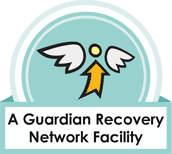Self-esteem is the confidence we have in our worth and abilities. Healthy self-esteem stems from our ability to objectively and accurately assess ourselves, weaknesses and all, while still recognizing that we are worthy.
Low self-esteem, however, increases the risk of anxiety, stress, depression and loneliness; causes problems in relationships; hinders academic and work performance; and can make a person more susceptible to drug and alcohol abuse.
Childhood shapes the way we view the world, and unsurprisingly, it shapes our self-esteem. Growing up, our interactions with family, peers, teachers and virtually anyone else we’ve come in contact with contributed to our self-esteem. According to The University of Texas at Austin Counseling and Mental Health Center, experiences that lead to healthy self-esteem include:
- Being spoken to with respect.
- Being listen to.
- Getting an adequate amount of attention and affection.
- Receiving recognition for accomplishments and acknowledgment and acceptance of mistakes or failures.
Experiences that can cause low self-esteem are:
- Being criticized, ignored or teased.
- Physical, sexual or emotional abuse.
- The expectation to be perfect all the time.
The Link Between Self-Esteem & Recovery
It’s hard to have healthy self-esteem while using substances. In fact, low self-esteem is what often drove us to drink or use in the first place. Once addiction takes hold, a vicious cycle begins, and it can be hard to escape self-destruction. Although drugs or alcohol may provide a temporary false sense of relief and confidence, it ultimately causes self-esteem to plummet.
Recovery requires satisfaction with one’s life, which might not be achievable if a person is struggling with low self-esteem. Genuine, lasting recovery requires you to value yourself enough to commit to getting sober. Otherwise, there’s always a risk of returning to substances to ease the pain.
How to Improve Self-Esteem
Addiction recovery programs incorporate a variety of evidence-based and alternative therapies that help people replace negative self-talk and build healthy self-esteem. These therapies will help you:
- Become more self-aware. Recovery requires self-awareness, which requires you to figure out who you are. Treatment will give you time to learn about yourself, both in and out of the traditional talk therapy setting, as well as become more mindful of potentially harmful people and situations that could damage self-esteem and trigger relapse.
- Take care of yourself. Optimal physical, mental and spiritual health are crucial to recovery. It’s so important to take care of your whole self by eating well, staying active, participating in therapy, meditating and engaging in activities that make you feel more fulfilled.
- Replace negative self-talk. To truly recover from addiction, you have to change your mindset and replace negative self-talk with more positive, compassionate language. You’ll learn how to accept your mistakes and learn from them instead of dwelling on them.
Recovery is multi-layered, and self-esteem is just one component. Guardian IOP’s comprehensive, holistic recovery programs can help you recover from addiction, improve your self-esteem and establish a foundation that empowers you to experience permanent recovery. For more information about our programs, please contact us at 855.517.1871.

Reviewed for accuracy by:
Anna Marie Barrett LCSW, CYT
Anna earned her Masters of Social Work at Barry University in Miami, FL in 2017 and completed her internship in co-occurring disorders. Anna has a Bachelors of Art in Religious Studies from Naropa University and is a certified yoga and meditation instructor. Anna has received specialized training in somatic counseling with an emphasis on body-centered psychotherapy.




















